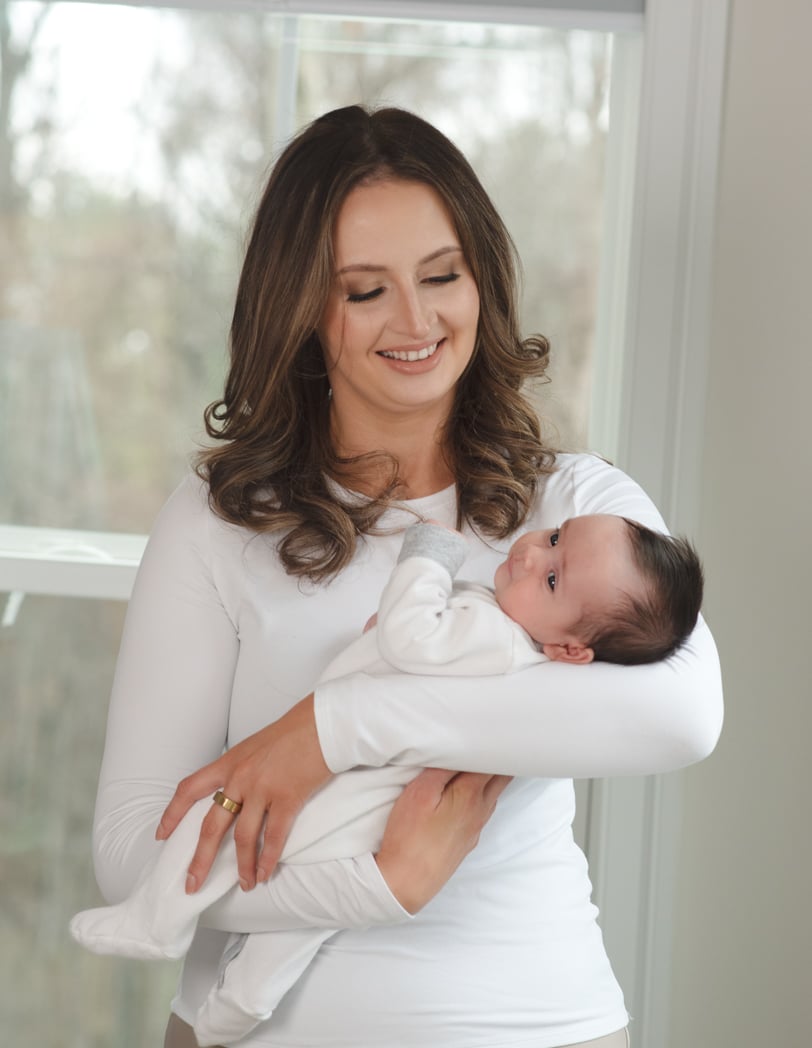
Why Trust Matters in Baby Sleep
When most parents think about baby sleep, they picture schedules, wake windows, or bedtime routines. But the real foundation of healthy, peaceful sleep is much deeper — it’s trust. From the very beginning, your baby’s sleep is tied to how safe and connected they feel. When babies know their caregivers are consistent, calm, and responsive, their nervous systems relax — making it easier for them to fall asleep and stay asleep. Trust does not mean responding perfectly every time. It means guiding with love. Let’s discuss how gentle baby sleep training can become a foundation of unshakable trust & attachment between you and your baby.
What “Trust” Looks Like From a Baby’s Perspective
For your baby, trust isn’t an abstract concept — it’s a felt sense of safety. It’s built through small, repeated moments every single day:
💓 When you respond to their cries with comfort.
💓 When bedtime feels calm and familiar.
💓 When your voice, your scent, and your touch tell them: You’re safe. I’m here.
As that trust grows, so does their ability to rest. Sleep becomes something peaceful, not something to fear or resist
Gentle Baby Sleep Training Can Strengthen Trust
There’s a common misconception that sleep training damages trust — but that couldn’t be further from the truth when it’s done gently and responsively.
At Baby Sleep Pros, I see sleep training as guiding, not forcing. It’s about helping your baby learn how to fall asleep independently, while still feeling loved and supported.
When you respond consistently, set clear routines, and guide your baby with love, you are sending a powerful message:
“I believe in you. I’m here for you. It is safe to rest.”
This combination of responsiveness and structure is what actually builds trust.
How to Build Trust Around Sleep
Here are some practical ways to make sleep time a space where trust deepens every day:
✅ Create predictability.
Babies feel safest when they know what’s coming next. Keep bedtime routines calm and consistent — same steps, same order, same tone.
✅ Respond calmly.
Your baby will feed off your energy. When you stay steady and reassuring, even during tears, they learn that bedtime isn’t scary.
✅ Use gentle transitions.
Whether you’re moving from rocking to crib, or dropping a nap, give your baby time to adjust. Rushing change can shake their sense of security.
✅ Trust yourself, too.
You know your baby best. The more you believe in your ability to support them, the more confident your baby will feel in your care.
Common Mistakes That Can Undermine During Gentle Baby Sleep Training
Even the most loving parents sometimes unintentionally create confusion around sleep. Here are a few patterns to watch for:
🚫 Changing sleep strategies too often.
🚫 Responding differently each night due to exhaustion or doubt.
🚫 Letting guilt or pressure from outside opinions shape your approach.
The good news? Babies are incredibly resilient. With consistency and warmth, trust can be rebuilt quickly.
Sleep and trust go hand in hand. When your baby feels safe, they sleep better. When you trust yourself, you parent with more calm and clarity.
A gentle, responsive sleep approach doesn’t just improve nights — it transforms the whole day.
If you’re ready to build trust around sleep and finally find balance as a family, I am here to help.
💛 Work with Baby Sleep Pros — where gentle meets effective, and rest begins with connection. For families in DMV area, I offer at-home consultations & virtual support worldwide.









